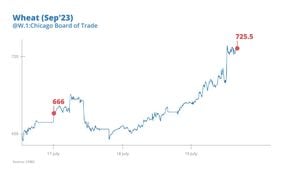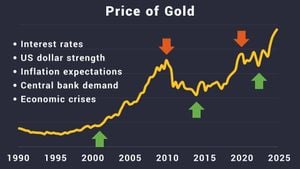Germany held early parliamentary elections on February 23, 2025, marking a significant shift in the political terrain of the nation as the conservative CDU/CSU emerged victorious. According to preliminary results, the Christian Democratic Union/Christian Social Union secured between 28.5 and 28.6 percent of the vote, translating to 208 seats in the Bundestag. This result positioned Friedrich Merz, the party leader, as the leading contender for the chancellorship, succeeding the Social Democratic Party's Olaf Scholz, who faced overwhelming electoral defeat.
The election results showcased the rightward movement within German politics, with the far-right Alternative for Germany (AfD) capturing second place with 20.8 percent, representing over ten percentage points increase from the previous election. This trend has raised concerns about the potential normalization of far-right rhetoric and policies within the political dialogue. Simultaneously, the Social Democrats garnered only 16.4 percent, their worst performance to date.
Other notable results include the Greens, who achieved 11.6 percent, and the Left Party, which received 8.7 percent. Notably absent from the new Bundestag are two parties: the left-populist "Union of Sahra Wagenknecht" and the Free Democratic Party (FDP), both of which failed to surpass the required five percent threshold for representation.
Friedrich Merz, who expressed his determination to form the next government, faces the formidable task of creating coalitions, especially considering the vocal rejection of any partnership with the AfD. Merz stated, "We will not seek freedom and peace on our knees to Putin," underlining his refusal to collaborate with populist movements.
The significance of this election extends far beyond national borders, particularly as European countries navigate geopolitical tensions, including the war in Ukraine. U.S. Former President Donald Trump congratulated CDU/CSU on their victory, stating on social media, "People of Germany are tired of energy and immigration policies lacking common sense, which have prevailed for years."
The election saw unprecedented voter engagement, with figures indicating participation from over 59 million eligible voters, including 30.6 million women and 2.3 million first-time voters. The high turnout reflects the public's heightened awareness of the existential issues at stake, particularly around Europe’s security and Germany's future role on the global stage.
Experts and commentators have noted the elections' historic nature due to the pressing themes of peace and stability within Europe. German newspaper Handelsblatt remarked on the significance of the election, emphasizing the strong voter awareness and turnout as symbols needed for the country at this pivotal moment, saying, "This election is a symbol for political change, for real ‘era change,’ for new beginnings, albeit challenging ones."
Reactions from international leaders have been swift, with British Prime Minister Keir Starmer and French President Emmanuel Macron extending their congratulations to Merz and the CDU/CSU. Macron reassured Olaf Scholz of his continued friendship, reinforcing the importance of collaboration as Europe grapples with mounting pressures from external and internal challenges.
Despite their electoral triumph, the CDU/CSU's path to governance is strewn with challenges. Analysts from German media outlets, including Tagesspiegel and FAZ, predict significant hurdles as Merz seeks to form a coalition capable of passing legislation. Tagesspiegel warned, "Merz must act decisively; hesitance will only provide space for extremists." Alongside this, the SPD’s participation within the parliament could establish them as the largest opposition party, complicaying the stability Merz hopes to achieve.
Political commentators also highlight the urgency for the new government to address pressing societal issues, including immigration, inflation, and economic recovery. Siegener Zeitung noted, "Germany urgently needs a functioning government capable of tackling serious problems without indulging in months of inactivity."
With significant decisions looming and potential coalitions to form, the aftermath of these elections signals the dawning of potentially transformative changes for German politics and society. All eyes are on Friedrich Merz as he embarks on the challenging road to coalition building, with the weight of national expectations pressing heavily on his shoulders.



